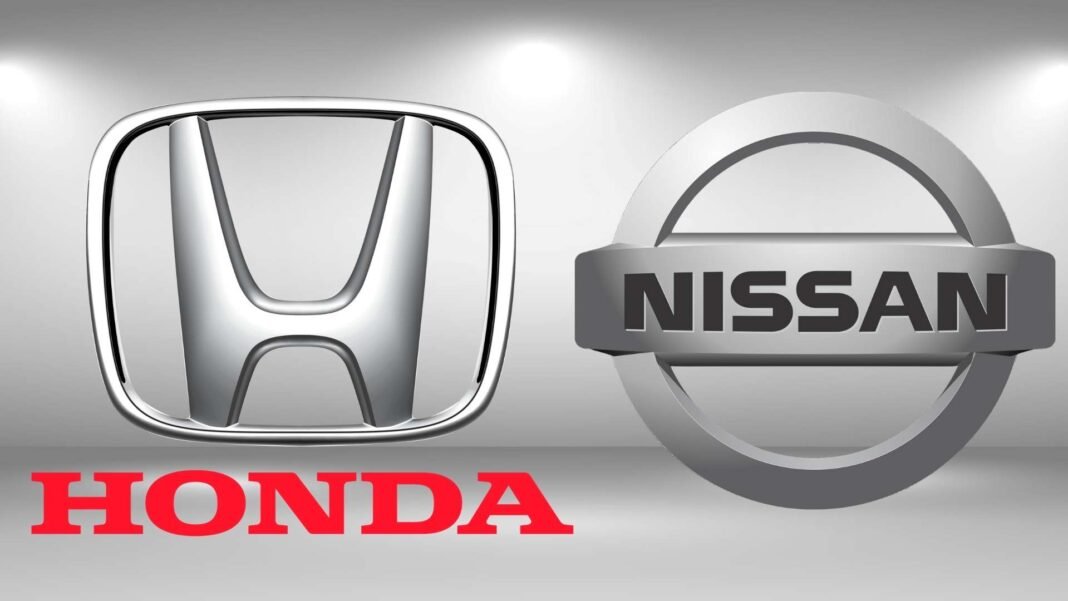Honda Motor Co. and Nissan Motor Co. are reportedly initiating discussions for a potential merger that could reshape the automotive landscape in Japan. This move comes as both companies seek to strengthen their competitive positions against industry giants, particularly Toyota Motor Corp., while navigating the rapidly evolving market for electric vehicles (EVs).
Background of the Talks
The discussions between Honda and Nissan are still in preliminary stages, but they mark a significant shift in the Japanese automotive industry. According to reports, both companies are considering various options, including a full merger, a capital tie-up, or the formation of a new holding company. This new structure could potentially include Mitsubishi Motors Corp., which Nissan already has ties with, thereby consolidating the three manufacturers under one umbrella.
Shinji Aoyama, Honda’s Executive Vice President, confirmed that the company is exploring multiple avenues for cooperation with Nissan. He emphasized that these discussions are part of a broader strategy to leverage each other’s strengths in response to global competition and technological advancements.
Strategic Rationale
The proposed merger is driven by several factors:
- Increased Competition: The automotive sector is witnessing fierce competition from both traditional automakers and new entrants, particularly in the EV market. Companies like Tesla and various Chinese manufacturers are gaining ground, prompting established players like Honda and Nissan to consolidate resources to remain competitive.
- Financial Stability: Both Honda and Nissan have faced financial challenges in recent years. Nissan, in particular, has struggled with declining profits and a heavy debt load. A merger could provide short-term relief by pooling resources and enhancing operational efficiencies.
- Technological Collaboration: Earlier this year, Honda and Nissan began collaborating on electric vehicle batteries and software development. This partnership laid the groundwork for deeper integration, making a merger a logical next step as they aim to enhance their technological capabilities.
Market Reactions
The news of potential merger talks has already impacted stock prices significantly. Following the reports, Nissan’s shares surged by over 20%, reflecting investor optimism about the benefits such a merger could bring. In contrast, Honda’s stock saw a slight decline of around 2% as market analysts weighed the implications of the deal.
The anticipated signing of a memorandum of understanding (MoU) is expected to formalize these discussions within the coming week. This MoU would allow both companies to explore shared equity stakes in the proposed holding company and outline further steps toward collaboration.
Challenges Ahead
Despite the potential benefits of a merger, several challenges lie ahead:
- Cultural Integration: Merging two large organizations with distinct corporate cultures can be complex. Both Honda and Nissan have their own operational strategies and management styles that may clash during integration efforts.
- Regulatory Scrutiny: The merger will likely face intense scrutiny from Japanese regulators concerned about job losses and market competition. Ensuring compliance with antitrust laws will be crucial as they navigate this process.
- Existing Partnerships: Nissan’s current relationship with Renault may complicate matters. The company has been unwinding its long-standing alliance with Renault amid rising tensions, which could hinder its ability to pursue a merger with Honda effectively.
Future Outlook
If successful, this merger could create a formidable entity capable of competing more effectively against Toyota, which remains the largest automaker globally. Together, Honda and Nissan sold approximately 4 million vehicles in the first half of 2024, compared to Toyota’s 5.2 million units during the same period.
A combined Honda-Nissan entity would enhance their market presence and enable them to invest more heavily in new technologies essential for future growth. With Honda aiming for 100% electric vehicle sales by 2040 and planning significant investments in EV technology, this partnership could accelerate its transition towards electrification.
The potential merger between Honda and Nissan signifies a pivotal moment for Japan’s automotive industry as it seeks to adapt to changing market dynamics and increasing global competition. While challenges remain regarding integration and regulatory approval, both companies appear committed to exploring this opportunity further.
As they move forward with discussions, stakeholders will be watching closely to see how this partnership unfolds and what it means for the future of automotive manufacturing in Japan and beyond.






